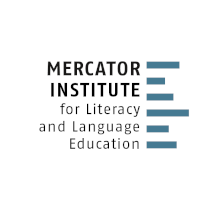HSU-Interregio
Despite the introduction of so-called heritage language teaching (HLT) in Germany in the 1960s and 1970s, it is only in recent years that the number of empirical studies and qualification work on heritage languages and HLT has increased nationwide. However, thus far, these findings have largely been presented in isolation from each other, without establishing any systematic links between them. This is mainly because the doctoral and post-doctoral theses have been produced in different disciplines and used different theoretical approaches and research methods. In order to bring together these various perspectives and approaches, there is an urgent need, after 50 years of HLT, for a systematic bundling of previous research results as well as a network of researchers working within this field. Furthermore, it is important to actively involve practitioners and educational administrators in the research process in order to facilitate the implementation of current knowledge into practice and access important impulses from practice to guide current and future research projects.
The main aim of the collaborative project is to bring together interdisciplinary and interregional approaches to the heritage languages spoken in Germany and to heritage language teaching. This will be achieved through a series of events that will help establish links between the perspectives, findings and needs within research and teaching practice.
To achieve this goal, the project leaders are conducting a three-year series of events, holding two events per year. Researchers at different qualification stages present their research at one of the annual events, which has a varying thematic focus. Experts on heritage languages and HLT are invited to these events as discussants. In addition, there is an annual online event at which participants discuss their research with HL teachers and educational administrators and help design practice-oriented workshops. In the first year, the content of the events focuses on heritage language acquisition in the family, in the second year, the focus is on heritage language teaching at school and, in the third year, the focus is on grass-root initiatives such as community language schools.
The content of the six events builds on each other and combines the academic perspective with the perspectives from practice and educational administration. This ensures that the resulting research is directly applicable and that it serves not only as an impulse generator within the respective research discipline but is also designed with teaching practice in mind.
The results of the events are to be published in joint open-access publications with contributions from the invited experts, the researchers, the heritage language teaching staff and the educational administration. In addition, the results of the practical workshops will be made available in the form of handouts and teaching materials with an OER licence on existing open-access repositories. The activities of the network and its members will also be continuously accompanied by outreach communication activities.
At a glance
Objective | The aim of the collaborative project is to bring together interdisciplinary and interregional approaches to the heritage languagesspoken in Germany and to heritage language teaching. This will be achieved through an event series that will enable the perspectives, findings and needs of research and teaching practice to be closely linked. |
|---|---|
Partners | Prof. Dr. Natalia Gagarina (ZAS Berlin) Interdisziplinäres Zentrum für Integrations- und Migrationsforschung Landesstelle Schulische Integration der Bezirksregierung Arnsberg Prof. Dr. Grit Mehlhorn (Universität Leipzig) Ministerium für Schule und Bildung NRW Prof. Dr. Christoph Schroeder (Universität Potsdam) Barbara Stolarczyk (Schreibzentrum TU Darmstadt) Zentrum für empirische Bildungsforschung an der Universität Duisburg-Essen |
Funded by | Federal Ministry of Education and Research (BMBF) |
Duration | May 2023 – April 2026 |
Project Management | Dr. Erkan Gürsoy (coordinator, Universität Duisburg-Essen) Prof. Dr. Helena Olfert (Universität Osnabrück) Dr. Till Woerfel (Universität zu Köln) |
Project Team | Dr. Till Woerfel Vanessa David (WHB) |
Links | |
Download | |
